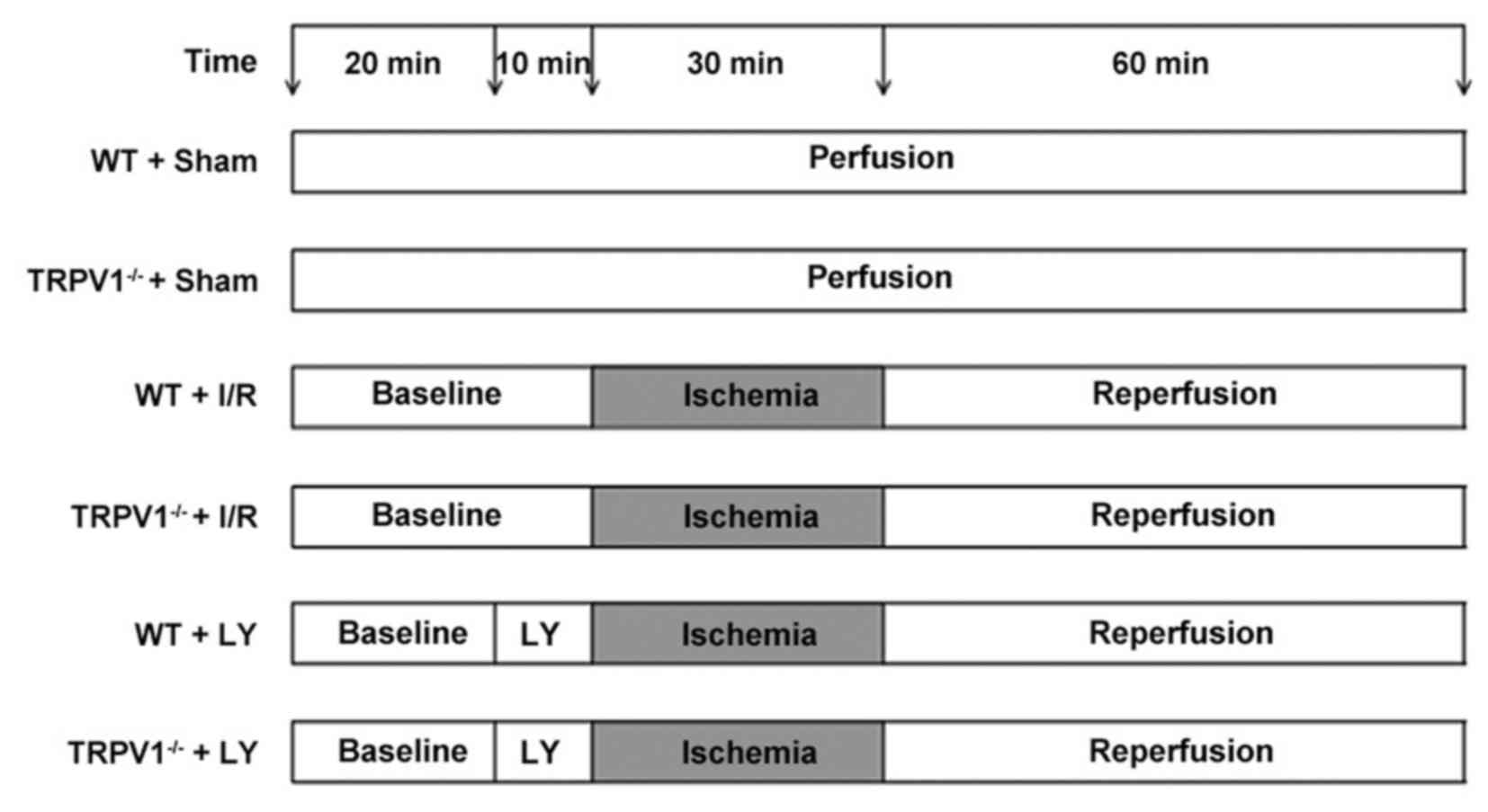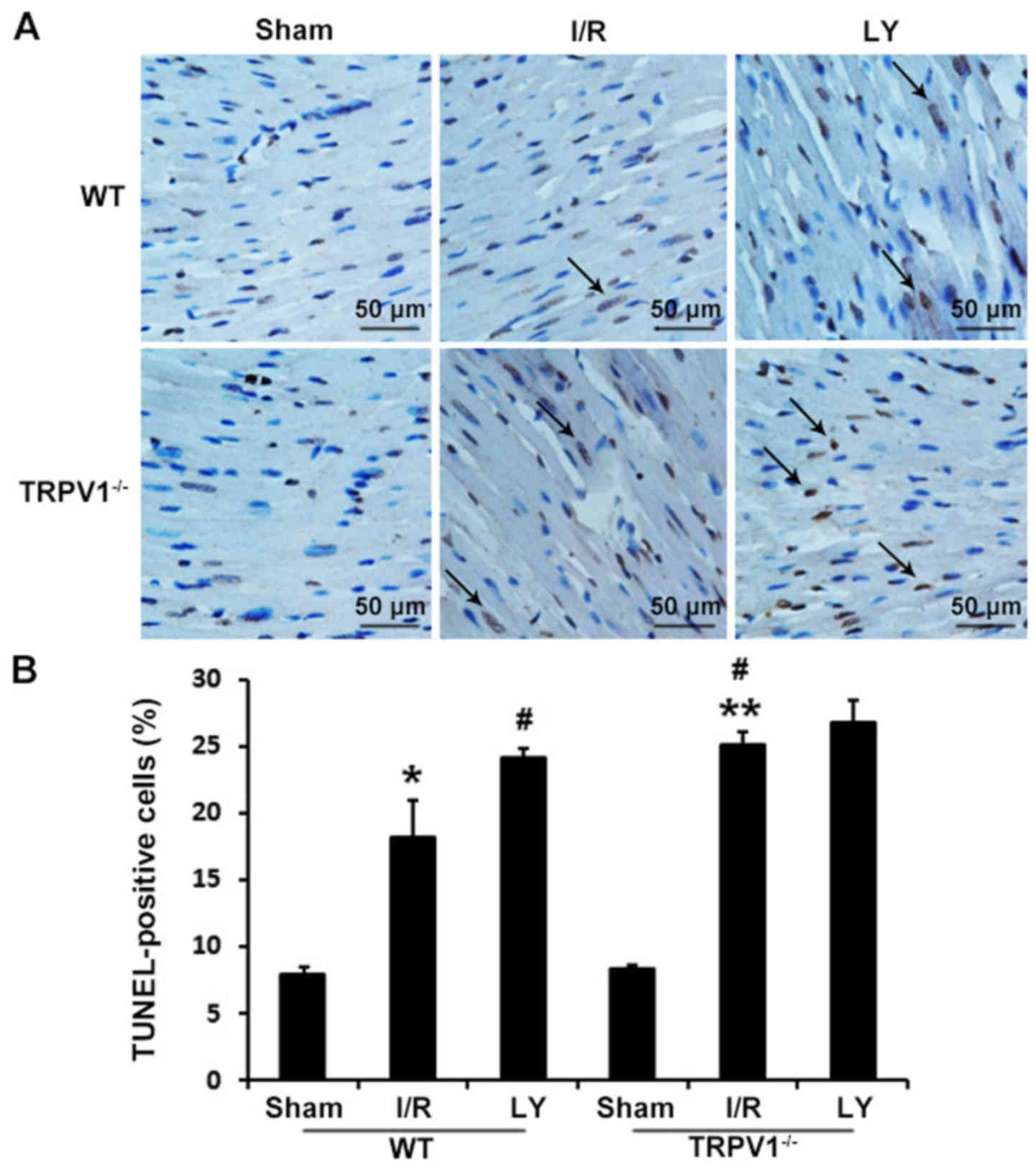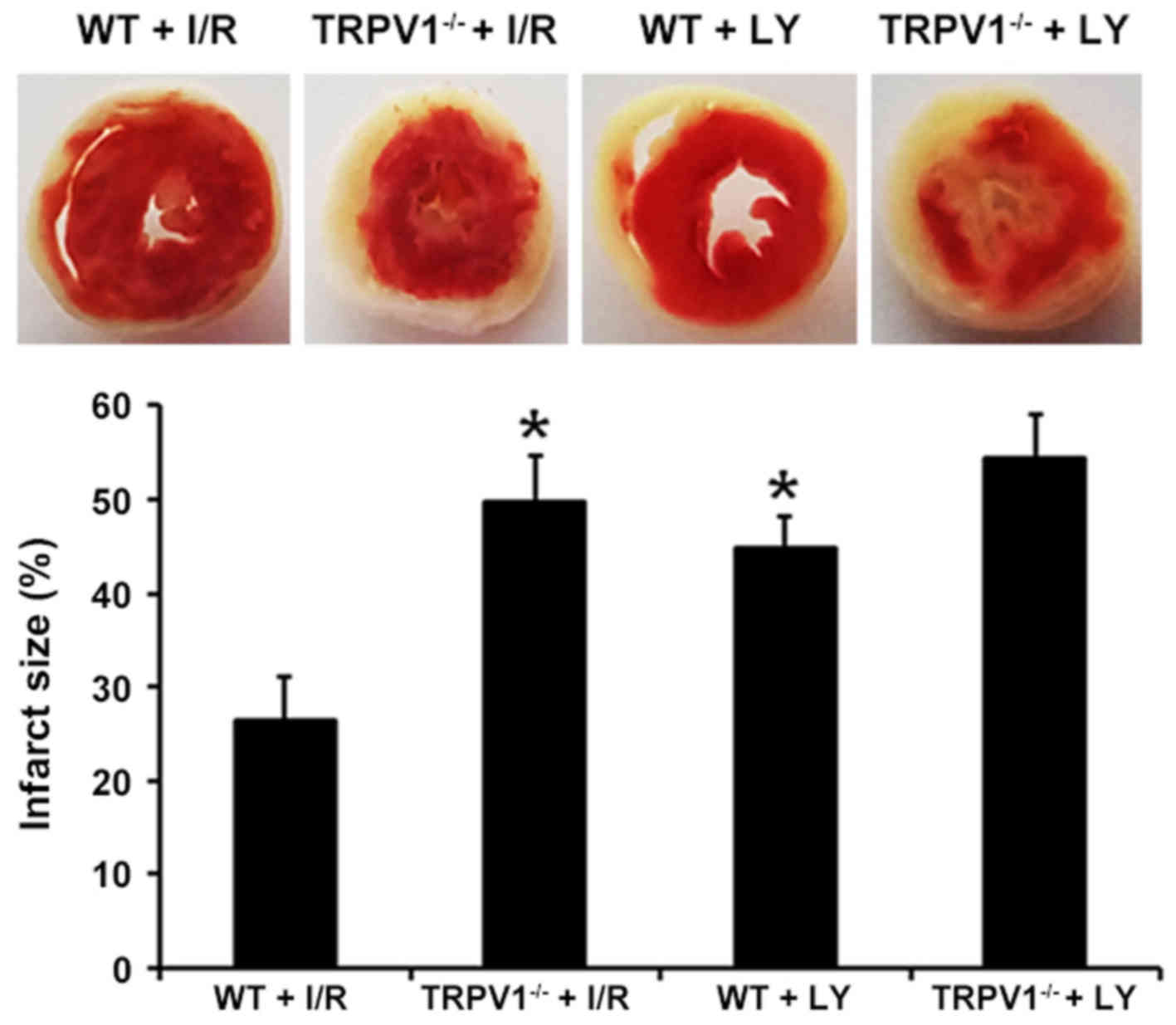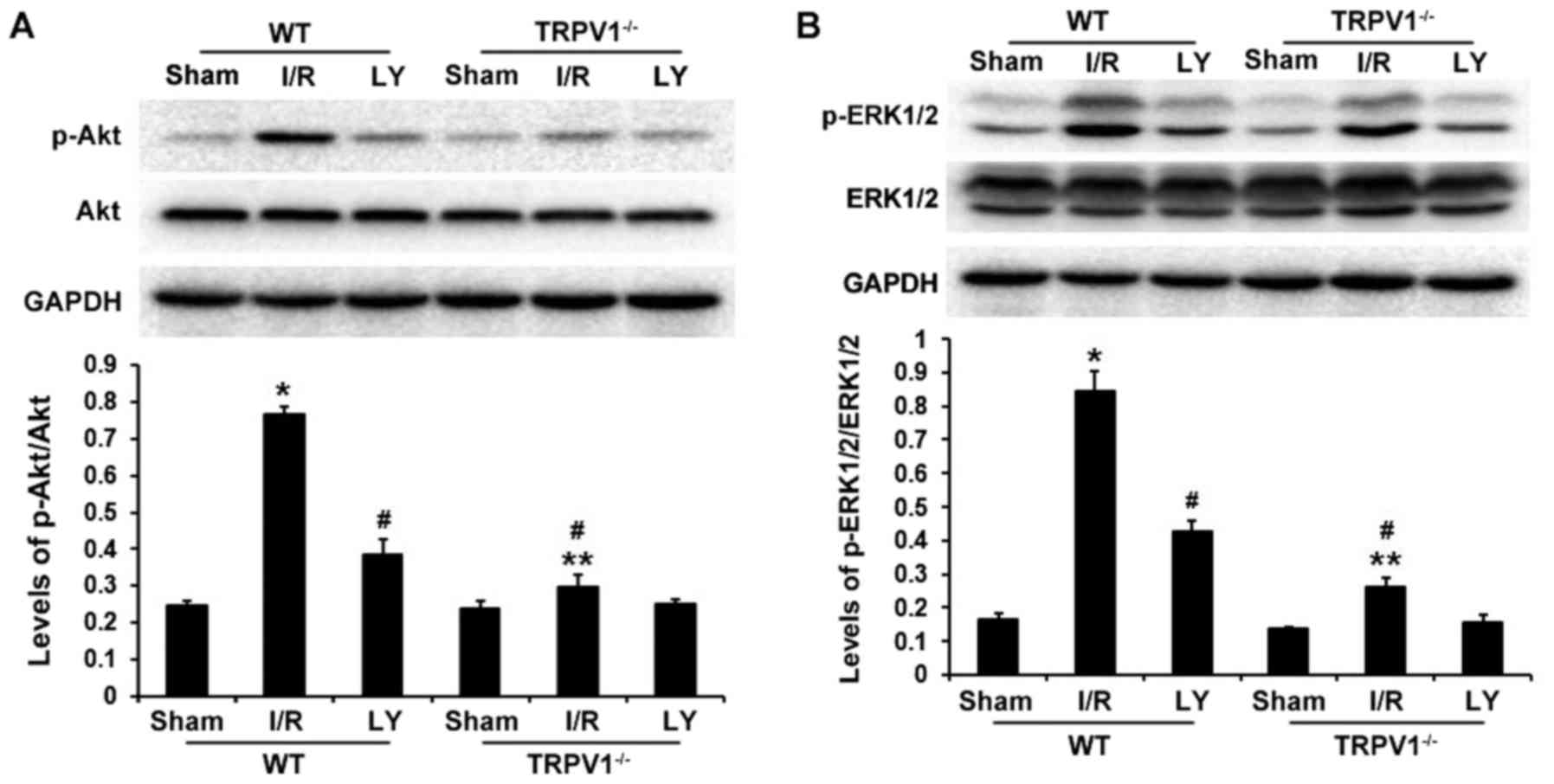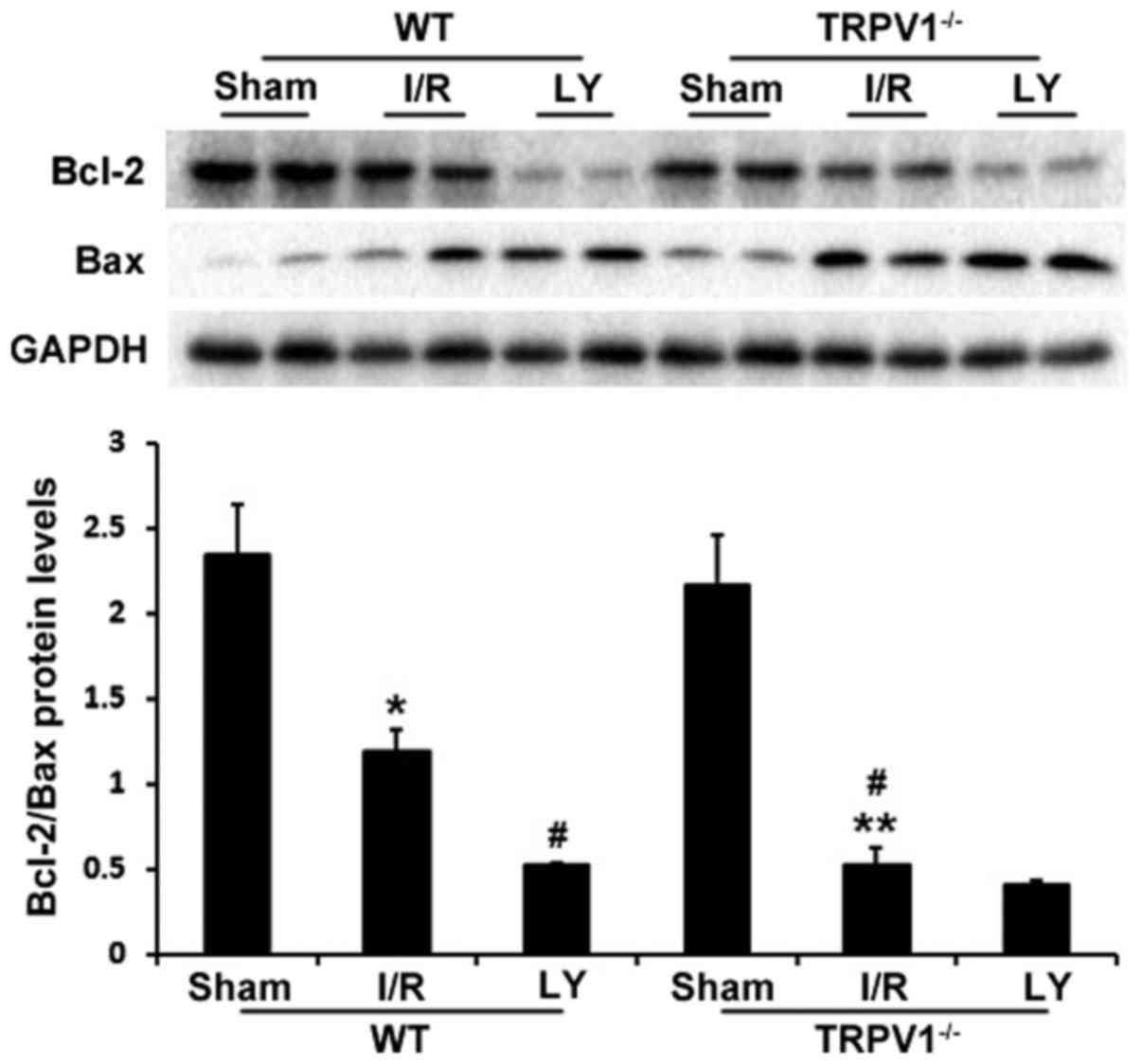|
1
|
Bolli R, Becker L, Gross G, Mentzer R Jr,
Balshaw D and Lathrop DA; NHLBI Working Group on the Translation of
Therapies for Protecting the Heart from Ischemia: Myocardial
protection at a crossroads: The need for translation into clinical
therapy. Circ Res. 95:125–134. 2004. View Article : Google Scholar : PubMed/NCBI
|
|
2
|
Sanada S, Komuro I and Kitakaze M:
Pathophysiology of myocardial reperfusion injury: Preconditioning,
postconditioning, and translational aspects of protective measures.
Am J Physiol Heart Circ Physiol. 301:H1723–H1741. 2011. View Article : Google Scholar : PubMed/NCBI
|
|
3
|
Hausenloy DJ and Yellon DM: Myocardial
ischemia-reperfusion injury: A neglected therapeutic target. J Clin
Invest. 123:92–100. 2013. View
Article : Google Scholar : PubMed/NCBI
|
|
4
|
Silber S, Albertsson P, Avilés FF, Camici
PG, Colombo A, Hamm C, Jørgensen E, Marco J, Nordrehaug JE, Ruzyllo
W, et al Guidelines for percutaneous coronary interventions: The
Task Force for Percutaneous Coronary Interventions of the European
Society of Cardiology. Eur Heart J. 26:804–847. 2005. View Article : Google Scholar : PubMed/NCBI
|
|
5
|
Steg PG, James SK, Atar D, Badano LP,
Blömstrom-Lundqvist C, Borger MA, Di Mario C, Dickstein K, Ducrocq
G, Fernandez-Aviles F, et al Task Force on the management of
ST-segment elevation acute myocardial infarction of the European
Society of Cardiology (ESC): ESC Guidelines for the management of
acute myocardial infarction in patients presenting with ST-segment
elevation. Eur Heart J. 33:2569–2619. 2012. View Article : Google Scholar : PubMed/NCBI
|
|
6
|
Ibáñez B, Heusch G, Ovize M and Van de
Werf F: Evolving therapies for myocardial ischemia/reperfusion
injury. J Am Coll Cardiol. 65:1454–1471. 2015. View Article : Google Scholar : PubMed/NCBI
|
|
7
|
Yellon DM and Hausenloy DJ: Myocardial
reperfusion injury. N Engl J Med. 357:1121–1135. 2007. View Article : Google Scholar : PubMed/NCBI
|
|
8
|
Zhang Y and Ren J: Targeting autophagy for
the therapeutic application of histone deacetylase inhibitors in
ischemia/reperfusion heart injury. Circulation. 129:1088–1091.
2014. View Article : Google Scholar : PubMed/NCBI
|
|
9
|
Tao J, Zhu W, Li Y, Xin P, Li J, Liu M, Li
J, Redington AN and Wei M: Apelin-13 protects the heart against
ischemia-reperfusion injury through inhibition of ER-dependent
apoptotic pathways in a time-dependent fashion. Am J Physiol Heart
Circ Physiol. 301:H1471–H1486. 2011. View Article : Google Scholar : PubMed/NCBI
|
|
10
|
Konstantinidis K, Whelan RS and Kitsis RN:
Mechanisms of cell death in heart disease. Arterioscler Thromb Vasc
Biol. 32:1552–1562. 2012. View Article : Google Scholar : PubMed/NCBI
|
|
11
|
Song JQ, Teng X, Cai Y, Tang CS and Qi YF:
Activation of Akt/GSK-3beta signaling pathway is involved in
intermedin(1–53) protection against myocardial apoptosis induced by
ischemia/reperfusion. Apoptosis. 14:1061–1069. 2009. View Article : Google Scholar : PubMed/NCBI
|
|
12
|
Pan HL and Chen SR: Sensing tissue
ischemia: Another new function for capsaicin receptors?
Circulation. 110:1826–1831. 2004. View Article : Google Scholar : PubMed/NCBI
|
|
13
|
Szallasi A and Blumberg PM: Vanilloid
(Capsaicin) receptors and mechanisms. Pharmacol Rev. 51:159–212.
1999.PubMed/NCBI
|
|
14
|
Caterina MJ, Schumacher MA, Tominaga M,
Rosen TA, Levine JD and Julius D: The capsaicin receptor: A
heat-activated ion channel in the pain pathway. Nature.
389:816–824. 1997. View
Article : Google Scholar : PubMed/NCBI
|
|
15
|
Caterina MJ, Leffler A, Malmberg AB,
Martin WJ, Trafton J, Petersen-Zeitz KR, Koltzenburg M, Basbaum AI
and Julius D: Impaired nociception and pain sensation in mice
lacking the capsaicin receptor. Science. 288:306–313. 2000.
View Article : Google Scholar : PubMed/NCBI
|
|
16
|
Davis JB, Gray J, Gunthorpe MJ, Hatcher
JP, Davey PT, Overend P, Harries MH, Latcham J, Clapham C, Atkinson
K, et al: Vanilloid receptor-1 is essential for inflammatory
thermal hyperalgesia. Nature. 405:183–187. 2000. View Article : Google Scholar : PubMed/NCBI
|
|
17
|
Zahner MR, Li DP, Chen SR and Pan HL:
Cardiac vanilloid receptor 1-expressing afferent nerves and their
role in the cardiogenic sympathetic reflex in rats. J Physiol.
551:515–523. 2003. View Article : Google Scholar : PubMed/NCBI
|
|
18
|
Bolli RandLatif A: No pain, no gain: the
useful function of angina. Circulation. 112:3541–3543. 2005.
View Article : Google Scholar
|
|
19
|
Sexton A, McDonald M, Cayla C, Thiemermann
C and Ahluwalia A: 12-Lipoxygenase-derived eicosanoids protect
against myocardial ischemia/reperfusion injury via activation of
neuronal TRPV1. FASEB J. 21:2695–2703. 2007. View Article : Google Scholar : PubMed/NCBI
|
|
20
|
Rang WQ, Du YH, Hu CP, Ye F, Xu KP, Peng
J, Deng HW and Li YJ: Protective effects of evodiamine on
myocardial ischemia-reperfusion injury in rats. Planta Med.
70:1140–1143. 2004. View Article : Google Scholar
|
|
21
|
Wang L and Wang DH: TRPV1 gene knockout
impairs postischemic recovery in isolated perfused heart in mice.
Circulation. 112:3617–3623. 2005. View Article : Google Scholar : PubMed/NCBI
|
|
22
|
Dai Z, Xiao J, Liu SY, Cui L, Hu GY and
Jiang DJ: Rutaecarpine inhibits hypoxia/reoxygenation-induced
apoptosis in rat hippocampal neurons. Neuropharmacology.
55:1307–1312. 2008. View Article : Google Scholar : PubMed/NCBI
|
|
23
|
Hausenloy DJ and Yellon DM: Reperfusion
injury salvage kinase signalling: Taking a RISK for
cardioprotection. Heart Fail Rev. 12:217–234. 2007. View Article : Google Scholar : PubMed/NCBI
|
|
24
|
Bucciarelli LG, Ananthakrishnan R, Hwang
YC, Kaneko M, Song F, Sell DR, Strauch C, Monnier VM, Yan SF,
Schmidt AM, et al: RAGE and modulation of ischemic injury in the
diabetic myocardium. Diabetes. 57:1941–1951. 2008. View Article : Google Scholar : PubMed/NCBI
|
|
25
|
Cross TG, Scheel-Toellner D, Henriquez NV,
Deacon E, Salmon M and Lord JM: Serine/threonine protein kinases
and apoptosis. Exp Cell Res. 256:34–41. 2000. View Article : Google Scholar : PubMed/NCBI
|
|
26
|
Council N: Guide for the care and use of
laboratory animals: Eighth edition. Guide for the Care & Use of
Laboratory Animals. 327:963–965. 2011.
|
|
27
|
Rahman S, Li J, Bopassa JC, Umar S, Iorga
A, Partownavid P and Eghbali M: Phosphorylation of GSK-3β mediates
intralipid-induced cardioprotection against ischemia/reperfusion
injury. Anesthesiology. 115:242–253. 2011. View Article : Google Scholar : PubMed/NCBI
|
|
28
|
Childs AC, Phaneuf SL, Dirks AJ, Phillips
T and Leeuwenburgh C: Doxorubicin treatment in vivo causes
cytochrome C release and cardiomyocyte apoptosis, as well as
increased mitochondrial efficiency, superoxide dismutase activity,
and Bcl-2:Bax ratio. Cancer Res. 62:4592–4598. 2002.PubMed/NCBI
|
|
29
|
Green DR and Reed JC: Mitochondria and
apoptosis. Science. 281:1309–1312. 1998. View Article : Google Scholar : PubMed/NCBI
|
|
30
|
Zhong B and Wang DH: TRPV1 gene knockout
impairs preconditioning protection against myocardial injury in
isolated perfused hearts in mice. Am J Physiol Heart Circ Physiol.
293:H1791–H1798. 2007. View Article : Google Scholar : PubMed/NCBI
|
|
31
|
Maulik N, Engelman RM, Rousou JA, Flack JE
III, Deaton D and Das DK: Ischemic preconditioning reduces
apoptosis by upregulating anti-death gene Bcl-2. Circulation.
100(Suppl 19): II369–II375. 1999. View Article : Google Scholar : PubMed/NCBI
|
|
32
|
Patel JR and Brewer GJ: Age-related
differences in NFkappaB translocation and Bcl-2/Bax ratio caused by
TNFalpha and Abeta42 promote survival in middle-age neurons and
death in old neurons. Exp Neurol. 213:93–100. 2008. View Article : Google Scholar : PubMed/NCBI
|
|
33
|
Costa MA, Fonseca BM, Keating E, Teixeira
NA and Correia-da-Silva G: Transient receptor potential vanilloid 1
is expressed in human cytotrophoblasts: Induction of cell apoptosis
and impairment of syncytialization. Int J Biochem Cell Biol.
57:177–185. 2014. View Article : Google Scholar : PubMed/NCBI
|
|
34
|
Harada N, Okajima K, Kurihara H and
Nakagata N: Stimulation of sensory neurons by capsaicin increases
tissue levels of IGF-I, thereby reducing reperfusion-induced
apoptosis in mice. Neuropharmacology. 52:1303–1311. 2007.
View Article : Google Scholar : PubMed/NCBI
|
|
35
|
Sun Z, Han J, Zhao W, Zhang Y, Wang S, Ye
L, Liu T and Zheng L: TRPV1 activation exacerbates
hypoxia/reoxygenation-induced apoptosis in H9C2 cells via calcium
overload and mitochondrial dysfunction. Int J Mol Sci.
15:18362–18380. 2014. View Article : Google Scholar : PubMed/NCBI
|
|
36
|
Huang W, Rubinstein J, Prieto AR, Thang LV
and Wang DH: Transient receptor potential vanilloid gene deletion
exacerbates inflammation and atypical cardiac remodeling after
myocardial infarction. Hypertension. 53:243–250. 2009. View Article : Google Scholar
|
|
37
|
Tang HB and Nakata Y: The activation of
transient receptor potential vanilloid receptor subtype 1 by
capsaicin without extracellular Ca2+ is involved in the
mechanism of distinct substance P release in cultured rat dorsal
root ganglion neurons. Naunyn Schmiedebergs Arch Pharmacol.
377:325–332. 2008. View Article : Google Scholar
|
|
38
|
Joung EJ, Li MH, Lee HG, Somparn N, Jung
YS, Na HK, Kim SH, Cha YN and Surh YJ: Capsaicin induces heme
oxygenase-1 expression in HepG2 cells via activation of PI3K-Nrf2
signaling: NAD(P)H:quinone oxidoreductase as a potential target.
Antioxid Redox Signal. 9:2087–2098. 2007. View Article : Google Scholar : PubMed/NCBI
|
|
39
|
Chen S, Liu J, Liu X, Fu Y, Zhang M, Lin
Q, Zhu J, Mai L, Shan Z, Yu X, et al: Panax notoginseng saponins
inhibit ischemia-induced apoptosis by activating PI3K/Akt pathway
in cardiomyocytes. J Ethnopharmacol. 137:263–270. 2011. View Article : Google Scholar : PubMed/NCBI
|
|
40
|
Weston CR, Balmanno K, Chalmers C,
Hadfield K, Molton SA, Ley R, Wagner EF and Cook SJ: Activation of
ERK1/2 by deltaRaf-1:ER* represses Bim expression
independently of the JNK or PI3K pathways. Oncogene. 22:1281–1293.
2003. View Article : Google Scholar : PubMed/NCBI
|
|
41
|
Zhuang ZY, Xu H, Clapham DE and Ji RR:
Phosphatidylinositol 3-kinase activates ERK in primary sensory
neurons and mediates inflammatory heat hyperalgesia through TRPV1
sensitization. J Neurosci. 24:8300–8309. 2004. View Article : Google Scholar : PubMed/NCBI
|
|
42
|
Rommel C, Clarke BA, Zimmermann S, Nuñez
L, Rossman R, Reid K, Moelling K, Yancopoulos GD and Glass DJ:
Differentiation stage-specific inhibition of the Raf-MEK-ERK
pathway by Akt. Science. 286:1738–1741. 1999. View Article : Google Scholar : PubMed/NCBI
|
|
43
|
Duckworth BC and Cantley LC: Conditional
inhibition of the mitogen-activated protein kinase cascade by
wortmannin. Dependence on signal strength. J Biol Chem.
272:27665–27670. 1997. View Article : Google Scholar : PubMed/NCBI
|
|
44
|
Wennström S and Downward J: Role of
phosphoinositide 3-kinase in activation of ras and
mitogen-activated protein kinase by epidermal growth factor. Mol
Cell Biol. 19:4279–4288. 1999. View Article : Google Scholar : PubMed/NCBI
|















